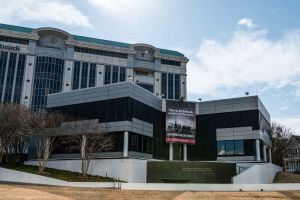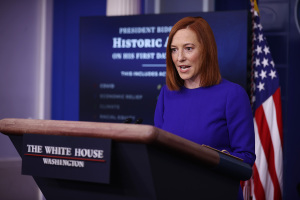Media Watchdog Draws Attention to Religious Right's 'Blind Side'
The head of a conservative media watchdog group is alerting the "Religious Right" of the race-related issues that he says has been and still remains in their "blind side."
"We saw the evil flooding in from the 'right side' of the line (e.g., abortion, amoral sex education in the public schools, 'gay rights,' pornography, the decline of standards in the mainstream media, hostility to religion in the courts, etc.)," says Morality in Media (MIM) President Robert Peters, recalling the rise of "morally conservative" Christians in the 1970s and 1980s through a football-based analogy.
"[B]ut for one reason or another didn't see the evil coming at us from the 'left side,'" he added, later listing issues such as chronic unemployment, family breakdown, failing public schools, and crime in Black communities.
After watching the movie "Blind Side," however, Roberts was compelled to share the film's need-to-hear message with the "Religious Right," which he also affiliates himself with.
"Blind Side," which stars popular actress Sandra Bullock, tells the story of an affluent white family in Memphis that takes a homeless African American youth into their home and make him part of their family.
With its unapologetically Christian characters, "The Blind Side" has been gaining fans in the Christian community, including many pastors, who have been raving about the Hollywood film that gives credit to the Christian faith for the good deeds performed by the Tuohy family.
Besides the Tuohy family's good deeds, the film highlights the positive impact the gentle and shy Michael "Big Mike" Oher had on his adopted family before he went on to become a star football player and eventually a first-round draft pick in the NFL. Oher is credited for bringing everyone closer together and filling the missing piece in the family.
"[E]ven though this film is about football, it is told from the perspective of the woman who opened her home to Michael Oher," Roberts noted. "It's a film both guys and gals can enjoy."
After watching the movie, Roberts shared in a commentary how the "Religious Right" has not only failed to see the dire needs in many Black communities, but has also failed to see that many African Americans are Christians.
"While Christians are called to do good to 'all men,' we are called 'especially' to do good to those who are of the household of faith," Roberts wrote. "We are also called to lay down our lives for 'the brethren' and to love not just in word but also 'in deed.'"
So while many churches have made efforts to assist small villages in foreign countries, Roberts would encourage them to also serve Black or Hispanic believers in needy communities.
"'[M]oral and family' issues (the focus of the 'religious right') and 'justice' issues (the focus of the 'religious left') are often interrelated," he added, using the "vicious cycle of poverty" (a justice issue) as an example.
"That cycle is still with us, and one reason it is still with us is the breakdown of morality and family life, which in turn is linked to the corrupting influences of pornography and popular culture," Roberts concluded.
Established in New York City in 1962 to combat pornography, MIM currently works to inform citizens and public officials about the harms of pornography and about what they can do through law to protect their communities and children. The interfaith group also works to maintain standards of decency on TV and in other media.




























